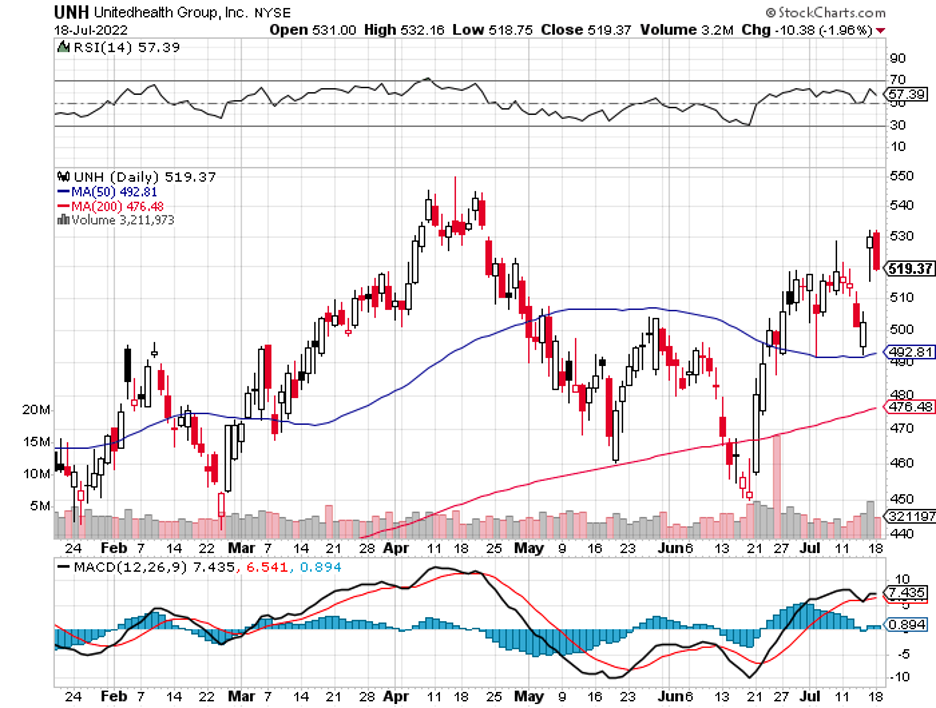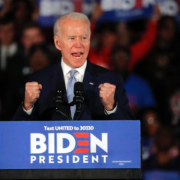A Recession-Proof Stock
The economy isn’t built to be recession-proof. Generally, it follows a relatively predictable albeit irregular pattern called the economic cycle.
Some periods of growth can typically last for several years before reaching its peak. What comes after is a period of contraction—aka a recession—before the economy once again moves towards another expansion.
Needless to say, periods of recession can be really brutal for investors. During this time, cyclical stocks or businesses that are highly sensitive to the economic cycle tend to be hit the hardest.
Meanwhile, certain stock market segments are relatively immune to these cycles. These companies provide investors with stocks that are nearly recession-proof, allowing them to buy and hold while awaiting the end of economic turmoil.
Among these companies, healthcare stocks are some of the most recession-proof options for investors.
After all, people can’t exactly suspend most healthcare needs. When you are sick, you have no choice but to visit the doctor and purchase medication.
Within the healthcare sector, health insurers appear to be beating the market recently.
When the pandemic began, health insurers had to adjust some aspects of their operations.
Reduced spending on non-essential medical care is an obvious change. However, this was counterbalanced by the increased costs of other procedures. These changes brought about by the pandemic greatly benefited the health insurance industry.
The emergence of more technological innovations and inflation are the primary reasons behind the increase in healthcare spending.
As these costs continue to accumulate and rise, an increasing number of clients will rely on health insurance companies as a hedge.
This is one of the key factors why the health insurance market worldwide is projected to grow by 4.6% annually from $2.8 trillion in 2020 to an impressive $3.9 trillion by 2027.
With a market capitalization of roughly $483 billion, UnitedHealth Group (UNH) is considered the largest health insurer across the globe.
For comparison, the second biggest health insurer is CVS Health (CVS) with a market capitalization of $123 billion, or about one-fourth the size of UNH.
Thanks to UNH’s sheer size and the positive industry outlook, the health insurance company is estimated to deliver 14.6% earnings growth annually over the next five years.
In its second-quarter earnings report, the company topped estimates of $5.21 per share and delivered $5.57 instead.
Its revenue of $80.3 billion was also above the earlier forecast of $79.7 billion.
This promising growth potential could be the main reason UNH announced a 13.8% per share rise in its quarterly dividend during its last earnings report.
Riding this momentum, UNH is expected to move forward with the $5.4 billion acquisition of LHC Group (LHCG) within the year.
As the first company within its segment to post earnings this quarter, UNH will be the “bellwether for the group.”
Although there’s a possibility that this health insurer’s report could be the best news in the sector, the overall outlook for its peers still remains positive.
It can be stressful and unnerving to even consider investing in the stock market at the moment. Considering that the S&P 500 is down 18% this year, it feels like a terrible time to buy stocks. But, that couldn’t be further from the truth.
Despite the fact that there are unquestionably some weak businesses in existence, there are also a great number of strong businesses with the capacity for long-term expansion and growth.
Accumulating shares of quality companies during a recession can position you for substantial long-term returns.
UNH’s performance is aligned with recent observations: the healthcare sector has been largely outperforming the market in 2022.
Amid the turbulent macroeconomic climate, this industry has managed to survive and even thrive.
While health insurers are not exactly risk-free, UNH's diversified business model enables it to withstand any economic downturn. Therefore, it would be prudent to buy the dip.



